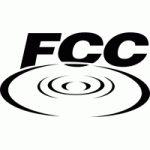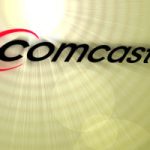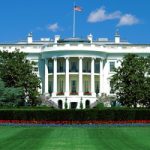First U.S. LTE plans could be bad news, say consumer groups

Advocacy groups Free Press, Media Access Project, and New America Foundation sent a complaint to the Federal Communications Commission Tuesday regarding the policies of MetroPCS, the nation's fifth-largest wireless operator, and the first one to activate its LTE 4G network. The groups complain MetroPCS' new "unlimited" wireless broadband service plans fall through loopholes in the FCC's new net neutrality plans, and could set a precedent for unfair content blocking.
Last week, MetroPCS unveiled new 4G LTE service plans which cost $40, $50, or $60 dollars. Each of the plans offers unlimited talk, text, and 4G Web browsing, but then the company puts up vague content barriers without defining what the usage cases are, and what consumers have access to.
For better or worse, here are the FCC's new Net Neutrality rules

Tuesday, the Federal Communications Commission voted upon --and passed by a 3-2 margin-- the Open Internet Order, the revised net neutrality rules which seek to establish more formal codes of conduct for broadband network operators.
The order has caused a great deal of sturm and drang among consumer advocacy groups, who feared that there would be a shift in power for internet service providers based upon loopholes it opens. The order has raised a great deal of concern from both sides of the political spectrum: from those who believe the FCC oversteps its boundaries by trying to create rules for the Web, and from those who believe the FCC isn't going far enough to prevent future problems.
Open Internet Order for Net Neutrality likely to pass at FCC hearing tomorrow

The net neutrality regulations known as the Open Internet Order are coming up for vote before the Federal Communications Commission tomorrow, and it is now believed the order will pass, based upon statements from FCC commissioner Michael Copps on Monday.
Copps was formerly the "swing vote" for the Open Internet Order, Commissioners Baker and McDowell are expected to vote against the order, while commissioners Clyburn and Genachowski are expected to vote in favor of it. Until recently, Copps was in favor of reclassifying the Internet as a Title II telecommunications service, but that position was denigrated not only by Chairman Genachowski, but also by former Commissioner Michael Powell who is considered the "founding father" of the regulation.
Group finds 5 main flaws with proposed Net Neutrality rules

A group of more than 80 advocacy groups including The Media Access Project, Reporters without Borders, Daily Kos, Common Cause, and Nonprofit Technology filed a letter with the Federal Communications Commission on Friday citing five main areas that need improvement in the Net Neutrality legislation coming up for vote on December 21.
Unlike former FCC Commissioner Michael Powell, whose main concern is keeping the Internet lean and loosely governed to empower investors, entrepreneurs, and businesses, these groups are focused on the rights of the user.
Level 3 Communications: 'Why doesn't Comcast accept our offer?'

Comcast, the United States' largest cable provider, and content delivery network Level 3 Communications remain at odds over how they will work together in the future. A major issue arose between the two companies in late November, after Netflix announced Level 3 would be its primary CDN, and Comcast sought to collect new fees from Level 3 due to the massive increase in traffic the Netflix arrangement would cause.
Level 3 argued that Comcast was abusing its monopolistic position to squeeze money out of a service working "over the top" of its broadband connections. Comcast, on the other hand, said it's simply re-negotiating a "peering" (free traffic) arrangement to a "transiting" (paid traffic by volume) arrangement.
Net neutrality debate needs a reset, says former FCC head Powell

At the next open FCC meeting on December 21, the first order of business will be the Open Internet Order, a revision to the FCC's Net Neutrality policies that have sprung from the nearly seven-year old doctrine on preserving internet freedoms by former FCC Chairman Michael Powell.
With net neutrality policy coming to the forefront of the FCC's agenda in just a matter of days, it's only fitting to hear how former Chairman Powell assesses the state of net neutrality.
FCC abandons 'third way' in net neutrality order up for vote this month

The Federal Communications Commission Wednesday outlined its next steps for the "Open Internet Order," the set of rules for Net Neutrality proposed last year that were based upon the "Four Freedoms" for the open internet introduced by former Commissioner Michael Powell in 2005.
The Open Internet Order, which comes up for vote at the next open FCC meeting on December 21, is a set of guidelines that seek to limit the power of Internet service providers while maintaining an environment that fosters innovation and equal access.
FCC getting involved in Level 3, Comcast Internet traffic spat

Comcast is being criticized after it has decided to charge Level 3 Communications a surcharge for 'excessive' bandwidth usage. According to the cable provider, Level 3 is sending about five times as much data to Comcast as is going the other way, it said in a statement.
Under protest that it violates open Internet principles Level 3 is paying the surcharge. It claims Comcast essentially gave the company an ultimatum to accept its terms, which Level 3 had no choice but agree to or face possible disruptions. Comcast's move has also spurred the FCC to ask for more information on the deal.
New industry meetings over net neutrality being hosted by lobbyists

While much of the focus has been on Google and Verizon when it comes to net neutrality as of late, the Wall Street Journal has reported that lobbyists began a new set of talks among a much wider group on Wednesday.
The Information Technology Industry Council is a lobbying firm which represents dozens of companies, including Apple, AOL, Cisco, HP, Microsoft, Nokia, and RIM among others. Reports indicate Microsoft is in attendance as is Cisco. AT&T and Verizon are also involved in the negotiations, but Google is not.
RIAA, music industry step into net neutrality debate once again

In a letter to Google chief Eric Schmidt, RIAA and 12 other music industry groups asked that any proposal on the issue of net neutrality be specific in taking steps to combat copyright infringement and child pornography. The inclusion of pornography in the industry's request is somewhat unusual considering none of the groups listed are active participants in any anti-pornography efforts.
The groups feel that any proposal should permit ISPs to take action against these issues. While the proposal put forth by Google and Verizon does address 'unlawful content,' it is not specific as to what that may entail.
RIAA, broadcasters want mandatory FM radio in cell phones, electronics
The music industry is looking for a way to save broadcast radio, and may have found it: a legislative mandate to carry FM radio in personal electronics. Like the net neutrality debate, this idea was born out of two sides disagreeing and attempting to come to a compromise.
RIAA and broadcasters are at odds over the payment for the right to play songs on the radio. While satellite and Internet broadcasts must pay this fee, radio is exempt under current copyright law. The labels want this changed, obviously the broadcasters do not.
Democrats slam Google-Verizon neutrality deal, ask FCC to act

AT&T and Verizon's net neutrality deal became a political issue on Monday as four House Democrats voiced their opposition to the plan with the Federal Communications Commission. In a letter to the regulatory agency, the lawmakers said the proposal 'reinforces the need for resolution' to the debate.
"Formal FCC action is needed," they wrote. "The public interest is served by a free and open Internet than continues to be an indispensable platform for innovation, investment, entrepreneurship, and free speech." The four lawmakers calling for the changes were Reps. Ed Markey of Massachusetts, Anna Eschoo of California, Jay Inslee of Washington, and Mike Doyle of Pennsylvania.
Google: Net Neutrality proposal 'represents real progress' in debate

After almost a week of criticism surrounding its announcement Monday that it had come to an agreement with Verizon over net neutrality, Google on Thursday attempted to defend itself. The Mountain View, Calif. company characterized the deal as progress on the issue, and done in the 'spirit of compromise.'
Since the announcement Monday, several companies have weighed in on the move. AT&T called the deal a 'positive step,' while Facebook criticized it over the fact that it excludes wireless traffic. Google took opponents to task for mischaracterizing some portions of the agreement, although it admitted that it didn't expect everyone to agree on the issue.
The Google-Verizon proposal is worse than evil

They say that the devil is in the details. But some things are so evil, the horned harbinger of deceit and doom is an obvious and menacing presence. The Google-Verizon proposal for an "open Internet" is the worst kind of evil, because Google so ardently asserts that "you can make money without doing evil" and the companies convincingly con with a deceitful sleight of hand. Their proposal for an open Internet is nothing of the kind. Google and Verizon offer to grant something people already have (unfettered, wired broadband) while exempting something Internet users want more of (unfettered, mobile wireless).
But the proposal's deceit goes further. Google and Verizon have put before the US government a huge carrot, while hiding behind their backs an even bigger stick. The two companies want the US Congress to pass their proposal into law, thus empowering the Federal Communications Commission to exert more control over the wired Internet. There are plenty of folks on Capitol Hill who want more Net control, and Google and Verizon have wrapped it up with ribbon and bow. The government's authority would be under the guise of keeping the Internet free and open for everyone -- ensuring Net neutrality. For lawmakers, the proposal is a seeming goldmine of goodwill during a tough election year.
AT&T, Facebook agree to disagree on Google-Verizon deal

AT&T and Facebook are the two latest companies to speak out on the net neutrality proposal put out by Google and Verizon on Monday, and their opinions of the deal appear to be on different sides of the argument.
At an investor conference, AT&T consumer and mobile chief Ralph de la Vega called it a "positive sign" and the right step forward to help the industry come to a reasonable agreement.
Recent Headlines
Most Commented Stories
BetaNews, your source for breaking tech news, reviews, and in-depth reporting since 1998.
Regional iGaming Content
© 1998-2025 BetaNews, Inc. All Rights Reserved. About Us - Privacy Policy - Cookie Policy - Sitemap.